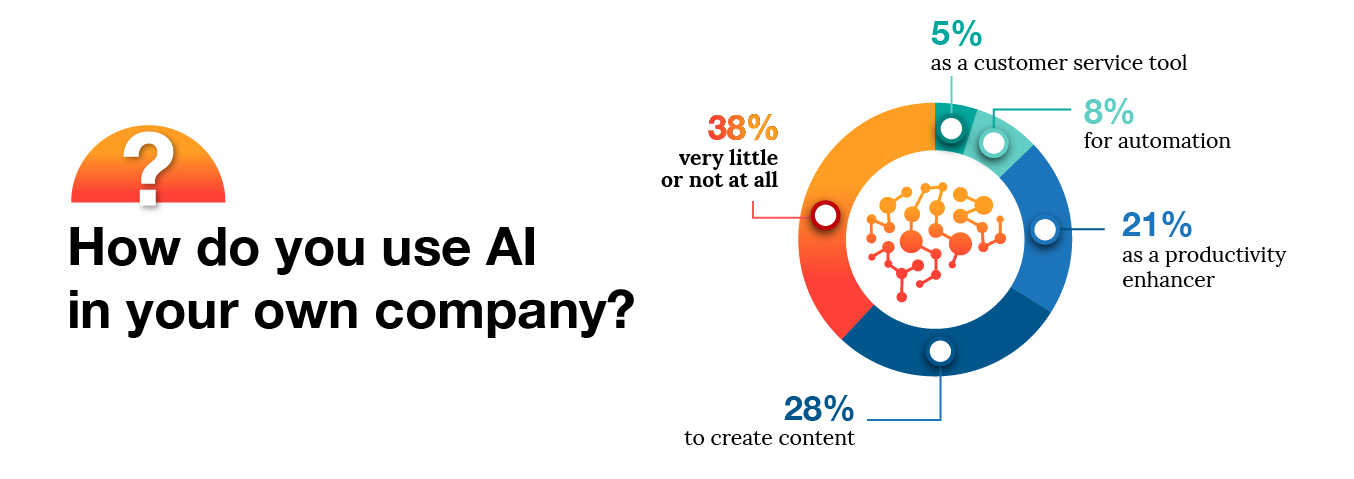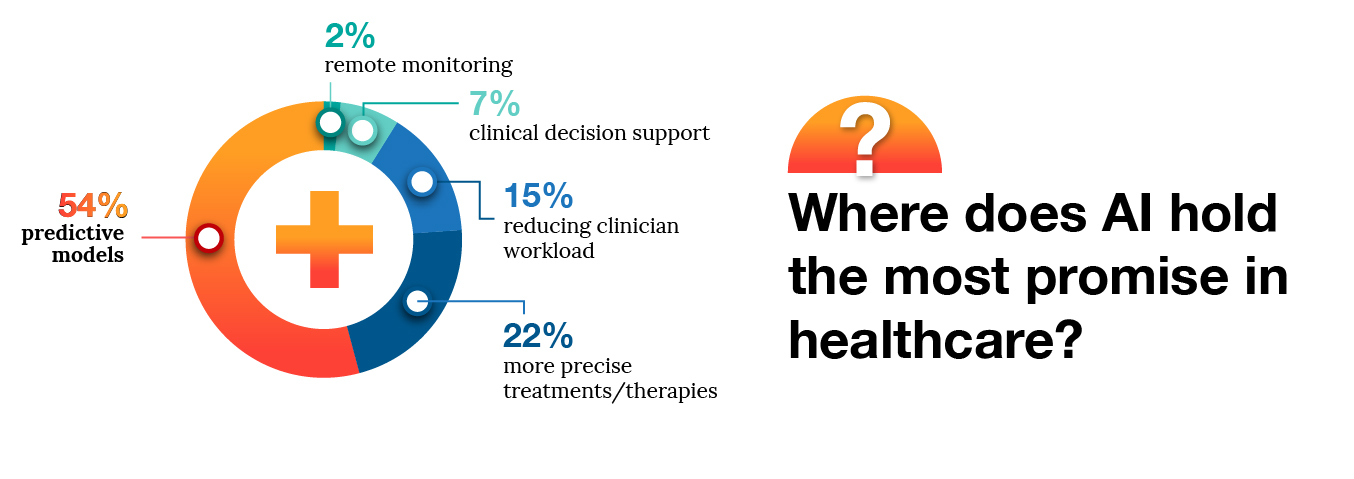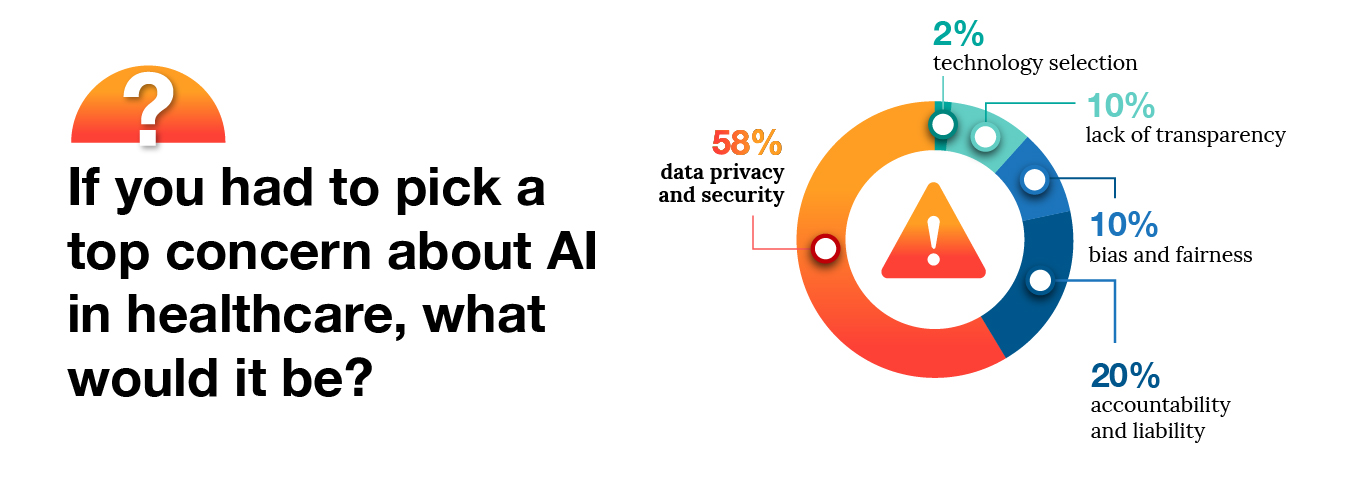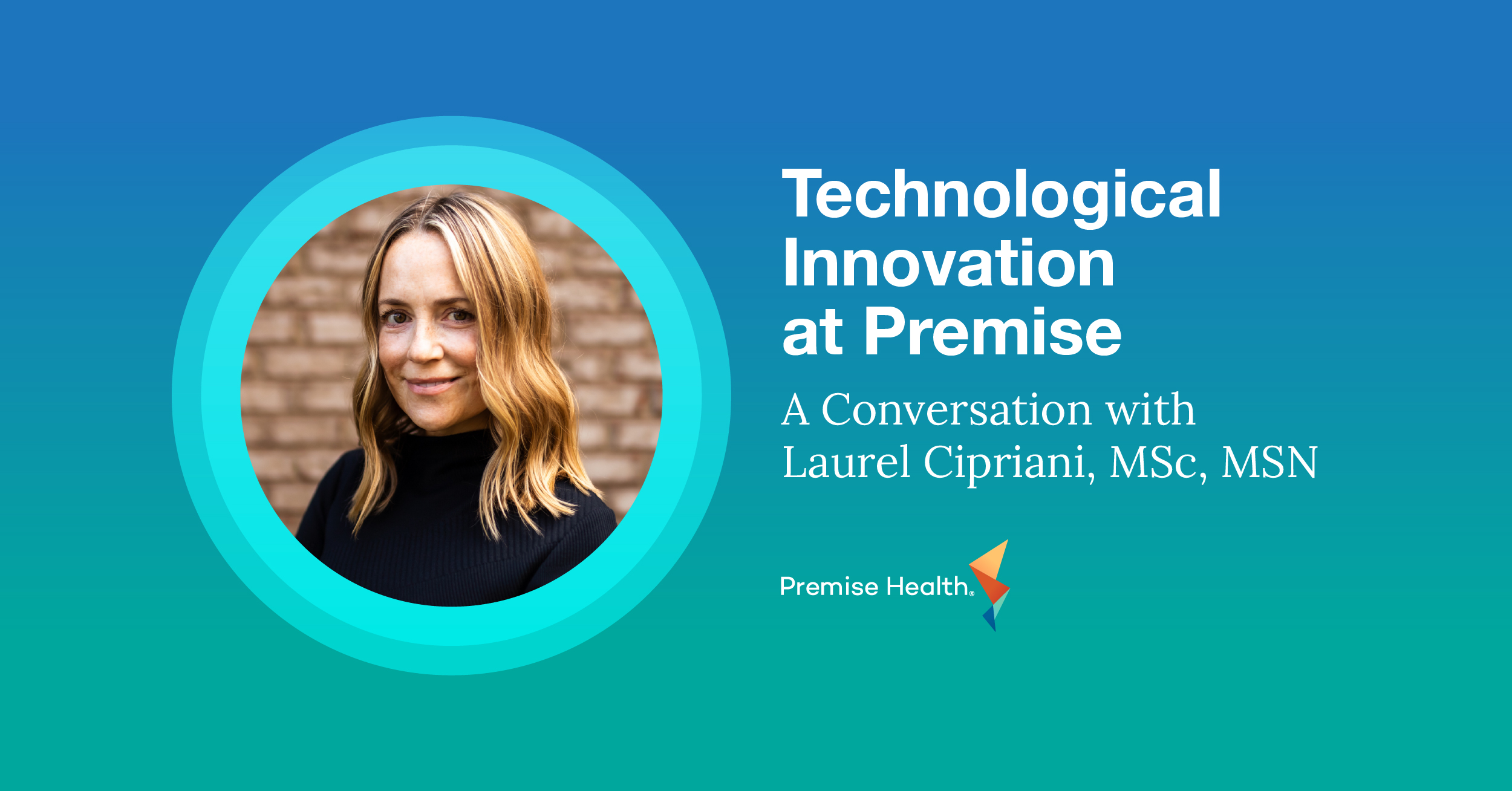4 Myths Benefits Leaders Believe About AI – and How to Dismantle Them
AI and machine learning is dominating healthcare news headlines, boardroom agendas, and watercooler conversations — but how do benefits leaders really feel about it? At Premise Health’s 2025 Client Forum, we asked some of the country’s most innovative HR leaders to share their thoughts on the promise of AI in healthcare. The results were mixed. While excitement is growing about how it can impact their benefits offerings, so are concerns and misconceptions. In fact, 53% of poll respondents shared that when they hear the term “AI,” they feel “cautiously optimistic.”
While artificial intelligence is certainly a buzzword, with careful and diligent evaluation, it’s not something to fear. Let’s break down the top four myths we uncovered at Client Forum and hear what organizations must consider as they look to bring AI and machine learning into the fold, straight from our Premise and Epic experts.
Myth 1: “Everyone is using AI.”
Reality: 38% of Client Forum attendees use AI “very little or not at all.”

While AI headlines suggest a gold rush, most organizations are still cautiously exploring early use cases. That means you’re not behind — you’re in good company. The necessity of AI in your organization comes back to the question of innovation, according to Sriram Narayan, executive vice president of data and analytics at Premise. In the Client Forum session, “Innovation: The Premise Roadmap,” Narayan shared, “Different organizations have different priorities. The key for us when we consider implementing AI technologies is to always tie that to business imperatives – where you’re trying to grow. I’ve seen a lot of companies spend a lot of money on the question of innovation and get very little value out of it.”
If your organization is still on the fence about your need for innovative technologies, Narayan recommended considering the following questions:
- Is this technology desirable?
- Is this technology creating value?
- Is this technology usable?
For AI and machine learning technologies related to healthcare delivery, Narayan urged leaders to focus on innovation that ties to improving member experiences, creating value, and boosting provider efficiency.
Myth 2: “AI is only useful for automation or customer service.”
Reality: 54% believe AI’s greatest value is in predictive models.

It’s true that some companies use AI purely to automate tasks or handle high-volume customer service inquiries — but that’s just the tip of the iceberg. In fact, only 8% of leaders who attended Client Forum said they’re currently using AI for automation, and just 5% cited customer service as a top use case. It appears these leaders believe AI’s real power lies in predictive models.
Epic, the developer of the nation’s leading electronic health record, has been creating innovative models and technologies to help clinicians provide smarter, more proactive care by identifying at-risk members, flagging care gaps, and reducing clinician burnout.
Spooner X, who leads technical and product development teams at Epic, shared some of the highlights of the innovations they’re rolling out, which are made more powerful by integrating directly into their EHR:
- Enhancing, not replacing, human care teams
- Personalizing member communication
- Saving healthcare costs through administrative efficiency
- Prioritizing features with clinical impact for patients
“We know there’s a shortage of clinicians right now, so anything we can do to make a provider’s workday as efficient as possible is a top priority for us right now at Epic,” Spooner X said.
Myth 3: “People are so excited about AI; they’re not digging deep enough into the security concerns.”
Reality: 59% cite data privacy and security as top concerns.

Many organizations have concerns when it comes to the data privacy and security of AI technologies, and those concerns are valid. However, instead of viewing those concerns as roadblocks, view them as important criteria for vetting the right innovative technologies and partners for your organization. “The journey to implementing AI across industries is bright, but it takes careful governance,” shared Narayan.
Premise has found a trusted partner in Epic based on their patient-centered approach to keeping data safe and secure. “We’ve been in this business for 40 years,” explained Spooner X. “We approach software development in a very intentional way. Whenever we think about a healthcare problem, we start from the center – with the patient at the heart. Everything we do links back toward the patient at the center of the software design. That same approach extends to our business practices. Patient medical information is used for clinical care and is never sold, used for model training, or utilized for other goals that aren’t in the patient’s interests.”
Myth 4: “We need a big strategy before we act.”
Reality: Most leaders are still exploring AI use cases, and that’s normal.
The majority of HR leaders are still early in their AI journeys. They’re testing small use cases, building internal understanding, and figuring out how this technology fits within their broader health and benefits strategies.
“Out of all the industries, healthcare is the most intentional with AI adoption – and for right reasons,” said Narayan. “Because what we do is personal, what we do is intimate. This is about changing the lives of patients. So, adoption might be slow.”
Moving from pilot to implementation won’t happen overnight: Narayan predicts that in five years, many companies will move from a proof-of-concept phase to a model-based phase. “Premise itself has done a nice job in terms of building pilots, and we are well positioned to scale in the future with good partnership from Epic and some of the other players we currently work with,” explained Narayan.
As your organization looks to fully implement AI and machine learning technologies, start by having open, honest conversations with your benefits vendors about your needs and concerns, and focus on what innovations make sense for your unique population.
Learn more about how our organization is using data to improve access, outcomes, and experiences for organizations.
Next on industry insights.

Technological Innovation at Premise: A Conversation with Laurel Cipriani, MSc, MSN
Read the Blog
From Insights to Impact: Addressing Behavioral Health Gaps Proactively
Read the Blog